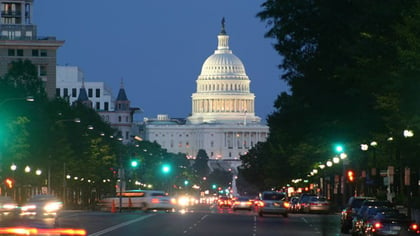The Securities and Exchange Commission received $1.6 billion for fiscal 2018 under the $1.3 trillion omnibus spending bill that was released by the House late Wednesday, mimicking the essentially flat $1.6 billion budget the securities regulator has been given since 2016.
The SEC’s fiscal 2018 budget allocation increases funding for information technology over the FY2017 level by not less than $45 million, and provides an additional $244 million for costs associated with relocating the SEC’s Washington headquarters.
The SEC requested on Feb. 12 a $1.66 billion budget for fiscal year 2019, a 3.5% increase over the agency’s 2018 request, which would allow the securities regulator to restore 100 positions lost during the 2017 hiring freeze.
The House passed the 2,232-page spending bill, the Consolidated Appropriations Act, 2018, by a 256-167 vote on Thursday afternoon. It will fund the government through Sept. 30.
The Senate passed the bill later that day by a 65-32 vote. The measure now goes to President Donald Trump for his signature.
The legislation increases spending across domestic and defense programs by $143 billion over FY2017, with $2.9 billion being provided for border security programs, including $1.3 billion for border security technologies and $641 million for border wall construction in the Rio Grande Valley.
The Commodity Futures Trading Commission, meanwhile, saw its budget cut from the requested $281 million to $248 million.
The Internal Revenue Service was given $11.4 billion in FY2018, of which $320 million must be used to implement tax reform.









 March 22, 2018 at 01:50 PM
March 22, 2018 at 01:50 PM










